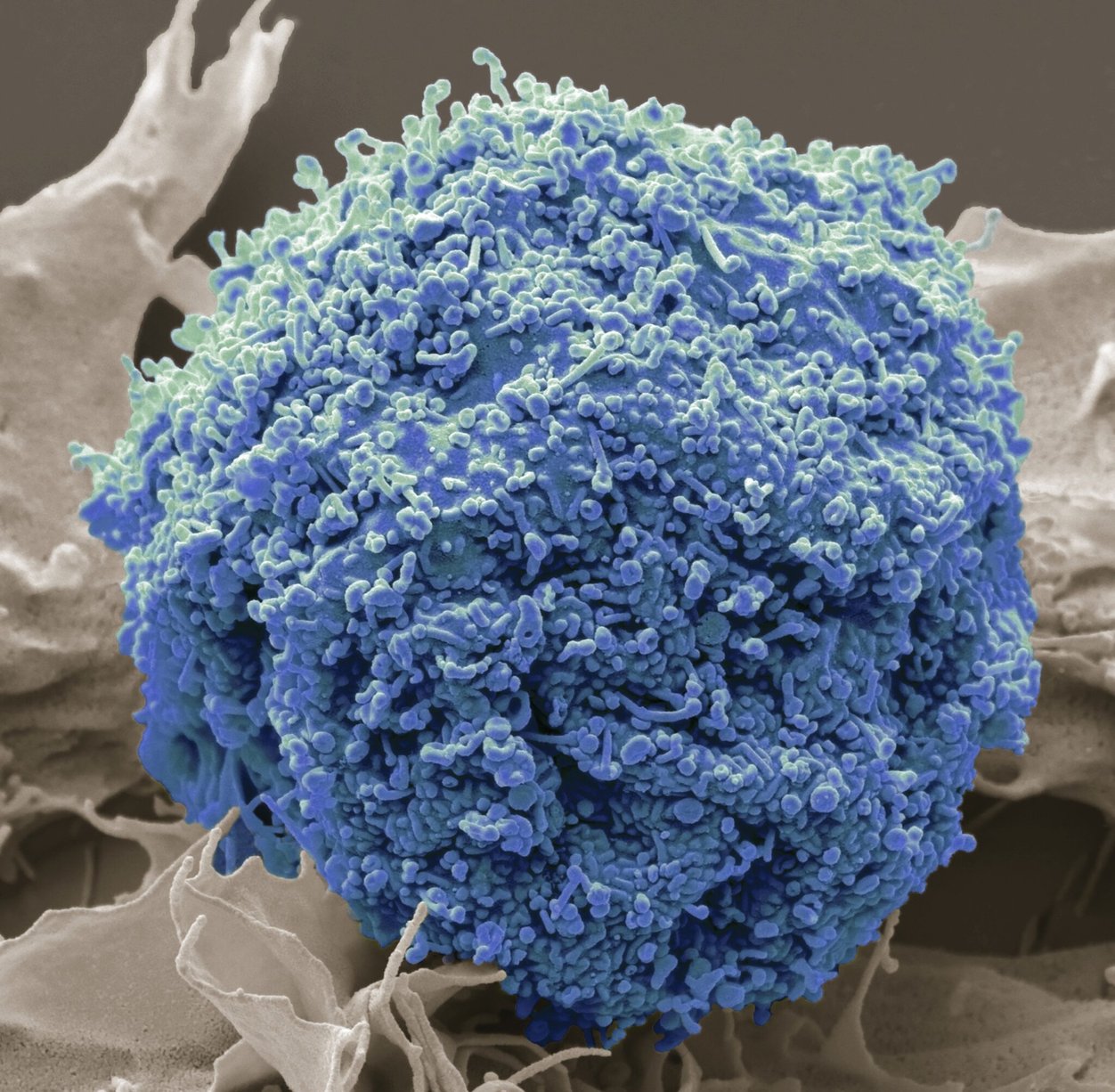cancer
How cellular 'trash bins' could help detect cancer early

Science Photo Library
One of the most important factors in surviving cancer is to catch it early. It's for this reason that dozens of companies have pursued DNA-based blood tests for detection, but so far, this technology hasn't lived up to its promise — and many oncologists doubt that it ever will. That's led some researchers to turn to a new approach for early detection, making use of nanoscale biological structures that our cells use to take out their garbage.
What were once seen as the "trash bins of cellular processes," extracellular vesicles are now "rich repositories of cellular cargo" like protein, DNA, RNA, lipids, and more, according to cancer researcher Cesar Martin Castro. STAT's Angus Chen and Marissa Russo wrote about the research on this approach, which is still in its infancy, and what key advantages it may have over yesterday's methods. Read more.
disturbia
Thinking you're about to be infected may be enough to trigger immune response, study suggests
In a world filled with ever-evolving pathogens, our immune systems need to recognize and respond to threats quickly. A new study suggests this can happen even sooner than researchers had previously realized — before infection.
A team led by scientists in Switzerland used virtual reality to test the reactions of 248 healthy young adults to avatar images of faces that either had neutral expressions; clear signs of infection, such as rashes or coughing; or that appeared fearful. When researchers used VR to simulate infected faces approaching participants, their innate lymphoid cells, a class of immune cells that respond quickly to threats, became activated. That didn't happen with participants who were shown a fearful avatar, suggesting that this change was not a general stress response, or in response to a neutral image. The authors saw similar changes in subjects given a flu vaccine.
The findings, published in the journal Nature Neuroscience on Monday, suggest that VR could be a useful way to better understand how the brain and immune system talk to one another. — Jonathan Wosen
first opinion
On involuntary commitment, political discomfort, and moral responsibility
As both a neurologist and a brother to somebody with schizophrenia, Shaheen E. Lakhan is intimately familiar with serious mental illness. So it may surprise some readers that Lakhan supports President Trump's recent executive order to make it easier for people with mental illnesses to be involuntarily committed. "The idea that civil liberties mean leaving people to deteriorate in public, untreated, is not progressive," he writes in a new First Opinion essay. "It's paralyzing."
Critics worry that the Trump administration only wants to move unhoused people out of the public eye. Lakhan recognizes that: "If the U.S. acts only to remove people from view and not to heal, it will repeat the worst mistakes of the past," he writes. Read the essay on what potential progress he sees for the future of mental health care.


No comments